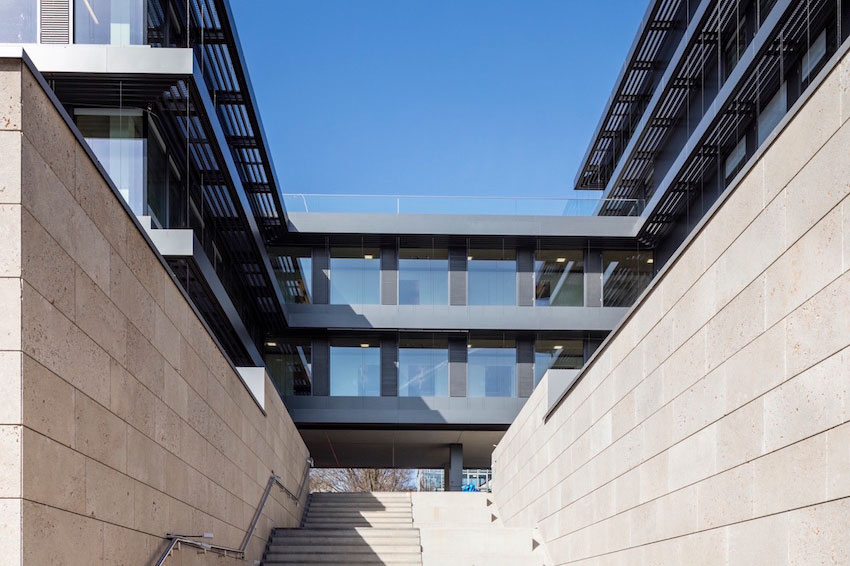Competence Centers for Machine Learning in Tübingen and Berlin
In October, the Federal Ministry of Education and Research (BMBF) announced the federal funding for the establishment of competence centres for machine learning. This is to say that research projects on artificial intelligence are pooled at four locations in Germany, including Berlin and Tübingen, two central locations of the Bernstein Network. These competence centres will play an important role in the federal government's declared strategy on artificial intelligence.

Max Planck Institute for Intelligent Systems, Tübingen, © W.-D. Gericke
/MPI/ The Tübingen AI Center will provide research groups at the University and at the Max Planck Institute for Intelligent Systems with a place to develop learning systems. The Federal Ministry of Education and Research will sponsor the center with some 6.6 million euros for an initial four years, starting 1 October. “We are delighted with the sponsorship for the Tübingen AI Center; we see a major opportunity to shape the future of artificial intelligence”, says coordinator Matthias Bethge, Professor of Computational Neuroscience and Machine Learning at the University of Tübingen. Researchers at the center will work on new concepts and principles to create more robust learning systems. Learning algorithms must be able to deal with external and unexpected influences. At the same time, their reactions must be predictable and transparent.
>> full press release of the University of Tübingen
/TUB/ Berlin is looking forward to the establishment of a new Berlin Competence Center for Machine Learning (BZML), which will be funded with around 8.5 million euros for four years. The interdisciplinary BZML is headed by Dr. Klaus-Robert Müller (speaker), Professor of Machine Learning at the Technische Universität Berlin. “The BZML has four focal points”, explains Prof. Dr. Klaus-Robert Müller, “on the one hand, we seek to advance the theoretical and algorithmic foundations of machine learning and thus establishi Berlin as an AI hotspot in the world”. A second focus will be on opening up new scientific and technical applications of machine learning. The scientists will work very closely with colleagues from medicine, communication and digital humanities.
>> full press release of the Technische Universität Berlin (German only)




